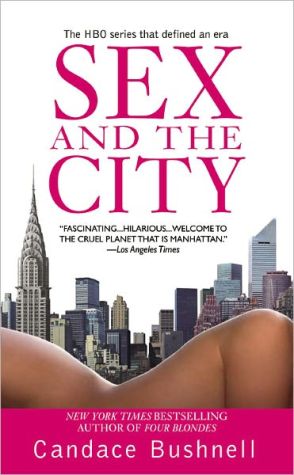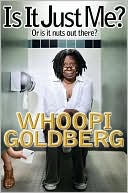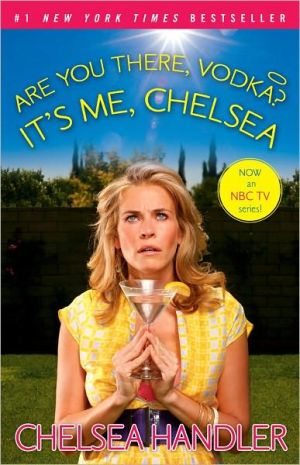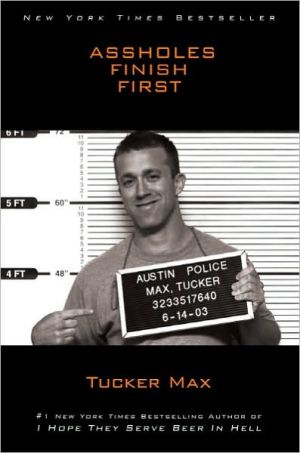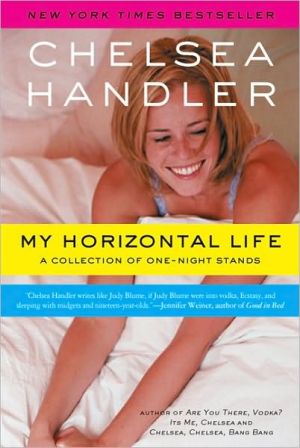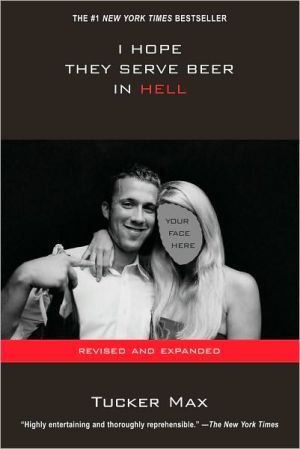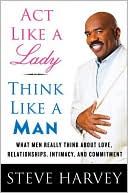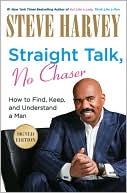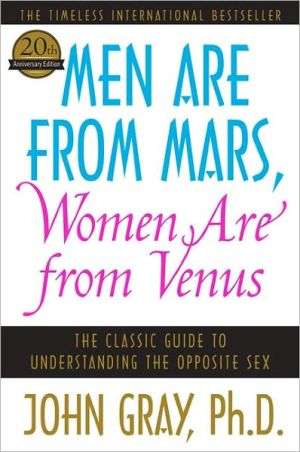Sex and the City
Equal parts soap opera, gossip page, sociological study, and dating manual, Sex and the City, Candace Bushnell's regular New York Observer column, has attracted a cult following, propelling Bushnell to achieve her own star-status. This collection brings her pieces together for the first time, where they read as a twisted nineties society novel in serial format. A chronicle of the mating habits of our cultural elite, Sex and the City makes a stage of the various launch parties, openings, and...
Search in google:
An insider's look at the world of society parties and New York literati functions. Salon - Christine Muhlke The media celebrities! The heartbreak! The strappy sandals! This bumptious collection of Candace Bushnell's Sex and the City columns from The New York Observer provides a prime banquette seat to witness the intense and rather frightening mating rituals of the attractive, successful, over-35-and-still-unmarried set. Those who follow Bushnell's column will be familiar with much of the material here; indeed, a fair portion of the chapters have run in The Observer in the last six months. Placed between hard covers, however, this so-called sex column takes on a different tone — it becomes a kind of serial novel that works as both a comedy of manners and a class study of the current Age of Non-Innocence. In her search for love amidst an endless stream of lunches and cocktail parties, Bushnell paints a bleak but funny portrait of her sisters in heels as they get everything they want except for a husband and children. We follow the intrepid, hungover "reporter" from a swingers' club (where the hottest thing was the buffet table) to a male forum on threesomes; from dinner with men who bed models to a bawdy ladies' tea where a serial dater is dissected. During the last third of the book, the voice shifts from the first person to that of Carrie (aka Bushnell). As she chronicles her relationship with Mr. Big (aka cigar-chomping Vogue publisher Ron Galotti), you may begin to understand why these womens' relationships fail. One compelling aspect of these juicy, fast-reading pieces is that they offer an insider's view of a very elite Manhattan. Sure, names have been changed and events modified (and who knows how she records those quotes), but if you're a bold-faced-name junkie, you know who she's talking about, or can at least enjoy speculating. Bushnell delivers the bad news about love in Man-hattan in an engaging "he said/she said" style ("He gave her more drugs and she gave him a blow job"), as though she were hoarsely whispering in your ear during lunch at the Royalton. As compelling as Bushnell can be, by the midway point of Sex and the City, the book's message is painfully clear: In her New York, locating and securing a powerful husband is, sadly, a woman's ultimate accomplishment.
\ \ \ \ Chapter One\ \ \ My Unsentimental Education:\ Love in Manhattan?\ I Don't Think So ...\ \ \ \ Here's a Valentine's Day tale. Prepare yourself.\ An English journalist came to New York. She was attractive and witty, and right away she hooked up with one of New York's typically eligible bachelors. Tim was forty-two, an investment banker who made about $5 million a year. For two weeks, they kissed, held hands—and then on a warm fall day he drove her to the house he was building in the Hamptons. They looked at the plans with the architect. "I wanted to tell the architect to fill in the railings on the second floor, so the children wouldn't fall through," said the journalist. "I expected Tim was going to ask me to marry him." On Sunday night, Tim dropped her off at her apartment and reminded her that they had dinner plans for Tuesday. On Tuesday, he called and said he'd have to take a rain check. When she hadn't heard from him after two weeks, she called and told him, "That's an awfully long rain check." He said he would call her later in the week.\ He never did call, of course. But what interested me was that she couldn't understand what had happened. In England, she explained, meeting the architect would have meant something. Then I realized, Of course: She's from London. No one's told her about the End of Love in Manhattan. Then I thought: She'll learn.\ Welcome to the Age of Un-Innocence. The glittering lights of Manhattan that served as backdrops for Edith Wharton's bodice-heaving trysts are still glowing—but thestage is empty. No one has breakfast at Tiffany's, and no one has affairs to remember—instead, we have breakfast at seven A.M. and affairs we try to forget as quickly as possible. How did we get into this mess?\ Truman Capote understood our nineties dilemma—the dilemma of Love vs. the Deal—all too well. In Breakfast at Tiffany's, Holly Golightly and Paul Varjak were faced with restrictions—he was a kept man, she was a kept woman—but in the end they surmounted them and chose love over money. That doesn't happen much in Manhattan these days. We are all kept men and women—by our jobs, by our apartments, and then some of us by the pecking order at Mortimers and the Royalton, by Hamptons beachfront, by front-row Garden tickets—and we like it that way. Self-protection and closing the deal are paramount. Cupid has flown the co-op.\ When was the last time you heard someone say, "I love you!" without tagging on the inevitable (if unspoken) "as a friend." When was the last time you saw two people gazing into each other's eyes without thinking, Yeah, right? When was the last time you heard someone announce, "I am truly, madly in love," without thinking, Just wait until Monday morning? And what turned out to be the hot non-Tim Allen Christmas movie? Disclosure—for which ten or fifteen million moviegoers went to see unwanted, unaffectionate sex between corporate erotomaniacs—hardly the stuff we like to think about when we think about love but very much the stuff of the modern Manhattan relationship.\ There's still plenty of sex in Manhattan but the kind of sex that results in friendship and business deals, not romance. These days, everyone has friends and colleagues; no one really has lovers—even if they have slept together.\ Back to the English journalist: After six months, some more "relationships," and a brief affair with a man who used to call her from out of town to tell her that he'd be calling her when he got back into town (and never did), she got smart. "Relationships in New York are about detachment," she said. "But how do you get attached when you decide you want to?"\ Honey, you leave town.\ \ \ LOVE AT THE BOWERY BAR, PART I\ It's Friday night at the Bowery Bar. It's snowing outside and buzzing inside. There's the actress from Los Angeles, looking delightfully out of place in her vinyl gray jacket and miniskirt, with her gold-medallioned, too-tanned escort. There's the actor, singer, and party boy Donovan Leitch in a green down jacket and a fuzzy beige hat with earflaps. There's Francis Ford Coppola at a table with his wife. There's an empty chair at Francis Ford Coppola's table. It's not just empty: It's alluringly, temptingly, tauntingly, provocatively empty. It's so empty that it's more full than any other chair in the place. And then, just when the chair's emptiness threatens to cause a scene, Donovan Leitch sits down for a chat. Everyone in the room is immediately jealous. Pissed off. The energy of the room lurches violently. This is romance in New York.\ \ \ THE HAPPILY MARRIED MAN\ "Love means having to align yourself with another person, and what if that person turns out to be a liability?" said a friend, one of the few people I know who's been happily married for twelve years. "And the more you're able to look back, the more you're proven right in hindsight. Then you get further and further away from having a relationship, unless something big comes along to shake you out of it—like your parents dying.\ "New Yorkers build up a total facade that you can't penetrate," he continued. "I feel so lucky that things worked out for me early on, because it's so easy not to have a relationship here—it almost becomes impossible to go back."\ \ \ THE HAPPILY (SORT OF) MARRIED WOMAN\ A girlfriend who was married called me up. "I don't know how anyone makes relationships work in this town. It's really hard. All the temptations. Going out. Drinks. Drugs. Other people. You want to have fun. And if you're a couple, what are you going to do? Sit in your little box of an apartment and stare at each other? When you're alone, it's easier," she said, a little wistfully. "You can do what you want. You don't have to go home."\ \ \ THE BACHELOR OF COCO PAZZO\ Years ago, when my friend Capote Duncan was one of the most eligible bachelors in New York, he dated every woman in town. Back then, we were still romantic enough to believe that some woman could get him. He has to fall in love someday, we thought. Everyone has to fall in love, and when he does, it will be with a woman who's beautiful and smart and successful. But then those beautiful and smart and successful women came and went. And he still hadn't fallen in love.\ We were wrong. Today, Capote sits at dinner at Coco Pazzo, and he says he's ungettable. He doesn't want a relationship. Doesn't even want to try. Isn't interested in the romantic commitment. Doesn't want to hear about the neurosis in somebody else's head. And he tells women that he'll be their friend, and they can have sex with him, but that's all there is and that's all there's ever going to be.\ And it's fine with him. It doesn't even make him sad anymore the way it used to.\ \ \ LOVE AT THE BOWERY BAR, PART II\ At my table at the Bowery Bar, there's Parker, thirty-two, a novelist who writes about relationships that inevitably go wrong; his boyfriend, Roger; Skipper Johnson, an entertainment lawyer.\ Skipper is twenty-five and personifies the Gen X dogged disbelief in Love. "I just don't believe I'll meet the fight person and get married," he said. "Relationships are too intense. If you believe in love, you're setting yourself up to be disappointed. You just can't trust anyone. People are so corrupted these days."\ "But it's the one ray of hope," Parker protested. "You hope it will save you from cynicism."\ Skipper was having none of it. "The world is more fucked up now than it was twenty-five years ago. I feel pissed off to be born in this generation when all these things are happening to me. Money, AIDS, and relationships, they're all connected. Most people my age don't believe they'll have a secure job. When you're afraid of the financial future, you don't want to make a commitment."\ I understood his cynicism. Recently, I'd found myself saying I didn't want a relationship because, at the end, unless you happened to get married, you were left with nothing.\ Skipper took a gulp of his drink. "I have no alternatives," he screamed. "I wouldn't be in shallow relationships, so I do nothing. I have no sex and no romance. Who needs it? Who needs all these potential problems like disease and pregnancy? I have no problems. No fear of disease, psychopaths, or stalkers. Why not just be with your friends and have real conversations and a good time?"\ "You're crazy," Parker said. "It's not about money. Maybe we can't help each other financially, but maybe we can help each other through something else. Emotions don't cost anything. You have someone to go home to. You have someone in your life."\ I had a theory that the only place you could find love and romance in New York was in the gay community—that gay men were still friends with extravagance and passion, while straight love had become closeted. I had this theory partly because of all I had read and heard recently about the multimillionaire who left his wife for a younger man—and boldly squired his young swain around Manhattan's trendiest restaurants, right in front of the gossip columnists. There, I thought, is a True Lover.\ Parker was also proving my theory. For instance, when Parker and Roger first started seeing each other, Parker got sick. Roger went to his house to cook him dinner and take care of him. That would never happen with a straight guy. If a straight guy got sick and he'd just started dating a woman and she wanted to take care of him, he would freak out—he would think that she was trying to wheedle her way into his life. And the door would slam shut.\ "Love is dangerous," Skipper said.\ "If you know it's dangerous, that makes you treasure it, and you'll work harder to keep it," Parker said.\ "But relationships are out of your control," Skipper said.\ "You're nuts," Parker said.\ Roger went to work on Skipper. "What about old-fashioned romantics?"\ My friend Carrie jumped in. She knew the breed. "Every time a man tells me he's a romantic, I want to scream," she said. "All it means is that a man has a romanticized view of you, and as soon as you become real and stop playing into his fantasy, he gets turned off. That's what makes romantics dangerous. Stay away."\ At that moment, one of those romantics dangerously arrived at the table.\ \ \ A LADY'S GLOVE\ "The condom killed romance, but it has made it a lot easier to get laid," said a friend. "There's something about using a condom that, for women, makes it like sex doesn't count. There's no skin-to-skin contact. So they go to bed with you more easily."\ \ \ LOVE AT THE BOWERY BAR, PART III\ Barkley, twenty-five, was an artist. Barkley and my friend Carrie had been "seeing" each other for eight days, which meant that they would go places and kiss and look into each other's eyes and it was sweet. With all the thirty-five year olds we knew up to their cuffs in polished cynicism, Carrie had thought she might try dating a younger man, one who had not been in New York long enough to become calcified.\ Barkley told Carrie he was a romantic "because I feel it," and he also told Carrie he wanted to adapt Parker's novel into a screenplay. Carrie had offered to introduce them, and that's why Barkley was there at the Bowery Bar that night.\ But when Barkley showed up, he and Carrie looked at each other and felt ... nothing. Perhaps because he had sensed the inevitable, Barkley had brought along a "date," a strange young girl with glitter on her face.\ Nevertheless, when Barkley sat down, he said, "I totally believe in love. I would be so depressed if I didn't believe in it. People are halves. Love makes everything have more meaning."\ "Then someone takes it away from you and you're fucked," Skipper said.\ "But you make your own space," said Barkley.\ Skipper offered his goals: "To live in Montana, with a satellite dish, a fax machine, and a Range Rover—so you're safe," he said.\ "Maybe what you want is wrong," said Parker. "Maybe what you want makes you uncomfortable."\ "I want beauty. I have to be with a beautiful woman. I can't help it," Barkley said. "That's why a lot of the girls I end up going out with are stupid."\ Skipper and Barkley took out their cellular phones. "Your phone's too big," said Barkley.\ Later, Carrie and Barkley went to the Tunnel and looked at all the pretty young people and smoked cigarettes and scarfed drinks. Barkley took off with the girl with glitter on her face, and Carrie went around with Barkley's best friend, Jack. They danced, then they slid around in the snow like crazy people trying to find a cab. Carrie couldn't even look at her watch.\ Barkley called her the next afternoon. "What's up, dude?" he said.\ "I don't know. You called me."\ "I told you I didn't want a girlfriend. You set yourself up. You knew what I was like."\ "Oh yeah, right," Carrie wanted to say, "I knew that you were a shallow, two-bit womanizer, and that's why I wanted to go out with you."\ But she didn't.\ "I didn't sleep with her. I didn't even kiss her," Barkley said. "I don't care. I'll never see her again if you don't want me to."\ "I really don't give a shit." And the scary thing was, she didn't.\ Then they spent the next four hours discussing Barkley's paintings. "I could do this all day, every day," Barkley said. "This is so much better than sex."\ \ \ THE GREAT UN-PRETENDER\ "The only thing that's left is work," said Robert, forty-two, an editor. "You've got so much to do, who has time to be romantic?"\ Robert told a story, about how he'd recently been involved with a woman he really liked, but after a month and a half, it was clear that it wasn't going to work out. "She put me through all these little tests. Like I was supposed to call her on Wednesday to go out on Friday. But on Wednesday, maybe I feel like I want to kill myself, and God only knows how I'm going to feel on Friday. She wanted to be with someone who was crazy about her. I understand that. But I can't pretend to feel something I don't.\ "Of course, we're still really good friends," he added. "We see each other all the time. We just don't have sex."\ \ \ NARCISSUS AT THE FOUR SEASONS\ One Sunday night, I went to a charity benefit at the Four Seasons. The theme was Ode to Love. Each of the tables was named after a different famous couple—there were Tammy Faye and Jim Bakker, Narcissus and Himself, Catherine the Great and Her Horse, Michael Jackson and Friends. Al D'Amato sat at the Bill and Hillary table. Each table featured a centerpiece made up of related items—for instance, at the Tammy Faye Bakker table there were false eyelashes, blue eye shadow, and lipstick candles. Michael Jackson's table had a stuffed gorilla and Porcelana face cream.\ Bob Pittman was there. "Love's not over—smoking is over," Bob said, grinning, while his wife, Sandy, stood next to him, and I stood behind the indoor foliage, trying to sneak a cigarette. Sandy said she was about to climb a mountain in New Guinea and would be gone for several weeks.\ I went home alone, but right before I left, someone handed me the jawbone of a horse from the Catherine the Great table.\ \ \ LOVE AT THE BOWERY BAR: EPILOGUE\ Donovan Leitch got up from Francis Ford Coppola's table and came over. "Oh no," he said. "I totally believe that love conquers all. Sometimes you just have to give it some space." And that's exactly what's missing in Manhattan.\ Oh, and by the way? Bob and Sandy are getting divorced.
\ Christine MuhlkeThe media celebrities! The heartbreak! The strappy sandals! This bumptious collection of Candace Bushnell's Sex and the City columns from The New York Observer provides a prime banquette seat to witness the intense and rather frightening mating rituals of the attractive, successful, over-35-and-still-unmarried set. \ Those who follow Bushnell's column will be familiar with much of the material here; indeed, a fair portion of the chapters have run in The Observer in the last six months. Placed between hard covers, however, this so-called sex column takes on a different tone — it becomes a kind of serial novel that works as both a comedy of manners and a class study of the current Age of Non-Innocence. M\ In her search for love amidst an endless stream of lunches and cocktail parties, Bushnell paints a bleak but funny portrait of her sisters in heels as they get everything they want except for a husband and children. We follow the intrepid, hungover "reporter" from a swingers' club (where the hottest thing was the buffet table) to a male forum on threesomes; from dinner with men who bed models to a bawdy ladies' tea where a serial dater is dissected. During the last third of the book, the voice shifts from the first person to that of Carrie (aka Bushnell). As she chronicles her relationship with Mr. Big (aka cigar-chomping Vogue publisher Ron Galotti), you may begin to understand why these womens' relationships fail.\ One compelling aspect of these juicy, fast-reading pieces is that they offer an insider's view of a very elite Manhattan. Sure, names have been changed and events modified (and who knows how she records those quotes), but if you're a bold-faced-name junkie, you know who she's talking about, or can at least enjoy speculating. Bushnell delivers the bad news about love in Man-hattan in an engaging "he said/she said" style ("He gave her more drugs and she gave him a blow job"), as though she were hoarsely whispering in your ear during lunch at the Royalton.\ As compelling as Bushnell can be, by the midway point of Sex and the City, the book's message is painfully clear: In her New York, locating and securing a powerful husband is, sadly, a woman's ultimate accomplishment.\ — Salon\ \ \ \ \ \ Publishers Weekly - Publisher's Weekly\ "We're leading sensory saturated lives," announces jetsetting photographer and playboy Peter Beard in a roundtable discussion of ménages à trois, setting the tone of opulent debasement that suffuses this collection of Bushnell's punchy, archly knowing and sharply observed sex columns from the New York Observer. Prowling the modish clubs, party circuit and weekend getaways of rich and trendy New York society (most of whose denizens are identified by pseudonyms), Bushnell offers a brash, radically unromantic perspective. She visits a sex club and dates a Bicycle Boy ("the literary romantic subspecies" whose patron saints are George Plimpton and Murray Kempton). But in most chapters she keeps to the sidelines, deploying instead her alter-ego Carrie (like the author, a blonde writer from Connecticut in her mid-30s), whose sweet if feckless romance with Mr. Biga nondescript power playerserves as a foil for the hilarious, unsentimentalized misadventures of her peers. These include model-chasers like Barkley, 25, a painter with the face of a Botticelli angel whose parents pay for his SoHo junior loft, and Tom Peri, the "emotional Mayflower," who ferries newly dumped women to higher emotional ground and is then invariably dumped. The effect is that of an Armistead Maupin-like canvas tinged with a liberal smattering of Judith Krantz. Collected in one volume, Bushnell's characters grow generic, but in small doses these essays are brain candy that will appeal equally to urban romantics and anti-romantics.\ \ \ Library JournalBushnell extracts some gems from her "Sex and the City" column in the New York Observer, which has a devoted following. But will it play in Peoria?\ \ \ \ \ Kirkus ReviewsFascinating and haunting insights into the love lives of the rich and randy in New York.\ Bushnell has gleaned pieces from her popular New York Observer column and combined them into an oddly touching collection. While the privileged, beautiful, pony-skin-boot-wearing folk she reports on seem ripe for parody, Bushnell has chosen to humanize them. The earlier articles feature Bushnell herself; she wisely removes herself from the later pieces, writing with the detached grace of an early Didion, and allows her friend (and alter ego?) Carrie to do the reporting. In one story, Carrie and her friends journey to Connecticut's wealthy suburbs to attend a wedding shower, complaining all the way. Bushnell perfectly captures the poignant moment when the New York group, glossy and single, realize that they are in fact jealous of their settled friend. The realization leads to a series of confessions: One woman nervously admits that she broke her ankle while rollerblading in an attempt to impress the younger man she was dating. Many of these pieces focus on the rise and fall of Carrie's relationship with "Mr. Big," who is a better date than most of the model-obsessed men she meets, but who is a "toxic bachelor" (unappreciative, self-centered, allergic to commitment) all the same. Bushnell's point, at its simplest level, is that what the glamorous women she writes about really want is a husband. But her writing is more sensitive than that, subtly catching the ways in which, beneath the veneer of Manolo Blahnik shoes and the eternal round of parties and the late nights at trendy bars, New York is a cruel place for smart, older women. Whatever lip service their male peers pay to equality, what men want is perpetual youth.\ Often funny and occasionally bleak, this is a captivating look at the "Age of Un-Innocence," in a city in which the glittering diversions don't quite make up for the fact that "Cupid has flown the coop."\ \ \ \ \ \ From Barnes & NobleIn this chronicle of the mating habits of New York's cultural elite, Bushnell infiltrates celebrity affairs, sex clubs, and posh suburbs to introduce us to "bicycle boys," "modelizers," and "toxic bachelors" — powerful and successful men who bed single and married women as if it were a contest. Often funny and occasionally bleak, this is an inside account of the quintessential '90s romance and the never-ending search for the perfect marriage partner in high society.\ \
